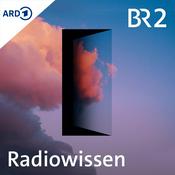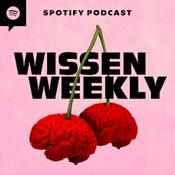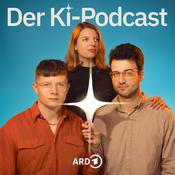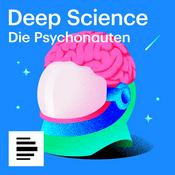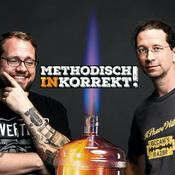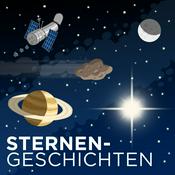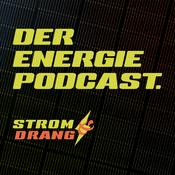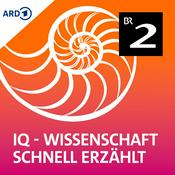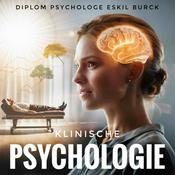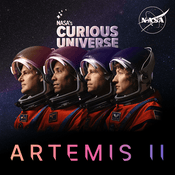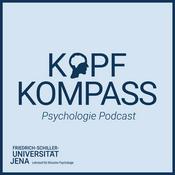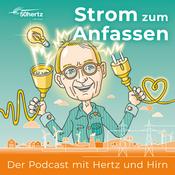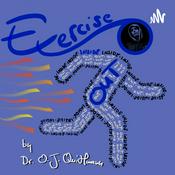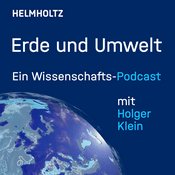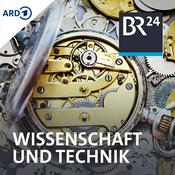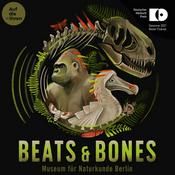All Things Urticaria – Learning about urticaria with Prof. Dr. Torsten Zuberbier
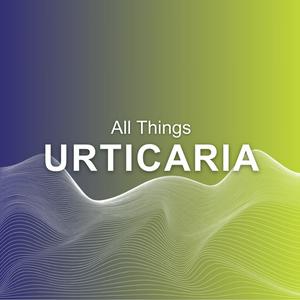
115 Episoden

A New Era for Urticaria Treatment
18.12.2025 | 5 Min.
In this short, conference-based episode, Professor Torsten Zuberbier, President of Global Allergy and Asthma Excellence Network, speaks with Professor Kiran Godse from Mumbai, India, directly from the UCARE Urticaria Conference, sharing the latest breakthroughs in urticaria research and treatment. The discuss: 🔹 What are the most important new developments in urticaria therapy? 🔹 How do BTK inhibitors change the way chronic urticaria is treated? 🔹 Why can these new drugs work in both autoimmune and autoallergic urticaria? 🔹 How can digital tools like the CRUSE App support patients and physicians? Professor Godse highlights the rapid progress made over the past year, including the emergence of novel oral therapies that caneffectively control most forms of chronic urticaria. The discussion focuses on BTK inhibitors, which act inside the mast cell to block histamine release at its source, offering a new, convenient tablet-based treatment option. In addition, the episode emphasizes the growing role of digital patient tools, such as the CRUSE App, which help patients monitor disease activity and support personalized treatment decisions worldwide.Key Learnings from the Episode:Chronic urticaria consists of autoallergic and autoimmune subtypes, both of which can be targeted by new BTK inhibitors. BTK inhibitors block mast-cell signaling inside the cell, preventing histamine release and reducing symptoms effectively. New oral therapies offer once- or twice-daily tablet options, improving convenience and adherence for patients. Several new urticaria treatments have been approved globally, with wider availability expected soon. The CRUSE App enables patients to track disease activity and supports data-driven clinical decisions. Digital tools improve doctor–patient communication and help personalize treatment strategies. Global initiatives like UCARE are transforming urticaria care through research, education, and collaboration. The outlook for urticaria patients is increasingly positive, with more effective and accessible treatments emerging worldwide. Chapters:00:00 Introduction to UCARE Conference01:31 New Developments in Urticaria Treatment03:22 Innovative Apps for Patient Management

Measuring What Matters: PROMs in Urticaria Care
02.12.2025 | 19 Min.
In this episode of the GA²LEN (Global Allergy and Asthma Excellence Network) Podcast on Everything Urticaria, Professor Torsten Zuberbier talks with Dr. Karsten Weller, a leading expert and developer of patient-reported outcome measures (PROMs), about how these tools are transforming the management of urticaria and angioedema in both research and daily care. The discuss: 🔹 What are PROMs and why are they essential in urticaria management? 🔹 How are they developed and validated scientifically? 🔹 Which tools should clinicians use in everyday practice? 🔹 What does the future hold for digital and app-based patient assessment? Dr. Weller explains how PROMs such as the Urticaria Control Test (UCT) help physicians understand disease control directly from the patient’s perspective. He discusses the scientific process of developing and validating PROMs, the benefits of integrating them into digital tools like the CRUSE App, and how simple, standardized communication enhances care. Together, they explore the future of patient-centered assessment, from wearable technologies to the evolving language of quality-of-life measures. Key Learnings from the Episode:PROMs capture the patient’s own perception of disease activity, control, and quality of life—crucial for fluctuating conditions like urticaria. The Urticaria Control Test (UCT) is a quick, validated 4-question tool recommended for every patient visit. PROM development follows a rigorous process including patient input, expert review, and validation studies. Tools like the Chronic Urticaria QoL Questionnaire (CU-Q2oL) and Angioedema QoL Questionnaire (AE-QoL) add depth when time allows. Digital apps such as the CRUSE App integrate PROMs into daily life and facilitate doctor–patient communication. Despite new technologies, the patient’s direct voice remains irreplaceable in capturing holistic well-being. The language of questionnaires must be periodically reviewed to stay clear and relevant across generations. PROMs promote standardized, efficient, and patient-centered care, empowering better decisions and stronger engagement. Chapters00:00 Introduction to Patient-Reported Outcome Measures (PROMs)03:23 The Development Process of PROMs05:57 Practical Application of PROMs in Clinical Practice08:40 The Future of Digital Tools in Patient Care11:28 Language and Communication in Patient-Reported Outcomes14:10 Final Thoughts and Conclusion

Why Do Hives Look the Way They Do?
28.10.2025 | 21 Min.
In this episode of the GA²LEN (Global Allergy and Asthma Excellence Network) Podcast on Everything Urticaria, Professor Torsten Zuberbier speaks with Professor Michihiro Hide from Hiroshima, Japan — a pioneer in urticaria research — about an unexpected connection between dermatology and mathematics. The discuss: 🔹 Why do urticaria wheals form distinct shapes — round, annular, or geographic? 🔹 What controls how long a wheal lasts before fading? 🔹 Can mathematical formulas help explain the biology of hives? 🔹 What could this mean for diagnosis and treatment in the future? Professor Hide shares how a collaboration with a mathematician led to the creation of a computational model that simulates wheal formation in silico, revealing five recurring urticaria patterns that correspond to clinical types such as cholinergic or chronic spontaneous urticaria. Together, the two professors explore how mast cells, basophils, endothelial cells, and coagulation factors interact through feedback loops to create (and stop) a wheal — and how this model could reshape our understanding of urticaria’s pathophysiology and treatment. Key Learnings from the Episode Urticaria’s shapes and lifespans can be mathematically modeled using Turing-inspired reaction-diffusion formulas. Five recurring patterns of wheals emerged from simulations, mirroring real-world urticaria morphology. Basophil-driven small dots (e.g., cholinergic urticaria) differ mechanistically from mast-cell-driven geographic wheals. Wheals persist longer than histamine-only reactions, implying sustained mast-cell activation. Urticaria develops through three stages — initiation, expansion, and resolution — governed by positive and negative feedback. Understanding the inhibitory phase that stops mast-cell activation is a key future research frontier. Mathematical modeling could help visualize and predict disease activity, opening paths for personalized therapy. Collaboration between clinicians and mathematicians may lead to a new diagnostic and research paradigm in chronic urticaria. Chapters 00:00 Introduction to Urticaria Research 02:03 Exploring the Mechanisms of Urticaria 06:25 Mathematical Approaches to Urticaria 10:30 Patterns and Predictions in Urticaria 15:37 Understanding Treatment Responses 19:07 Future Directions in Urticaria Research Press releasehttps://www.eurekalert.org/news-releases/1009793 References1. Seirin-Lee S, et al. A single reaction-diffusion equation for. the multifarious eruptions of urticaria. PLOS Computational Biology. 2020;16(1):e10075902. Seirin-LeeS, et al. Mathematical-based morphological classification of skin eruptions corresponding to the pathophysiological state of chronic spontaneous urticaria.Communications Medicine. 2023;3(1):171.3. Seirin-Lee S, et al. Pathophysiological Mechanisms of the Onset, Development, and Disappearance Phases of Skin Eruptions in Chronic Spontaneous Urticaria, Bulletin of Mathematical Biology. 2025; 87, 1Michihiro Hide has receivedlecture and/or consultation fees from Japan Tobacco, Kaken, Kyorin, KyowaKirin, Meiji Seiyaku, Mitsubishi Tanabe, Nippon Zoki, Novartis, Sanofi, Taiho,Teikoku and Yuhan.Do you have suggestions for future episodes? Please provide feedback and offer your suggestions for future topics and expert selection here. Feedback form: ATU: https://forms.office.com/e/m6a2uEdsUH

UDAY & New Guidelines: Empowering Patients Worldwide
30.9.2025 | 17 Min.
In this episode, Prof. Torsten Zuberbier (Global Allergy and Asthma Excellence Network President) welcomes Prof. Petra Staubach, urticaria expert from Germany, to talk about Urticaria Day (UDAY) — held each year on October 1st — and why awareness is just as important as science. They discuss: 🔹 Why do we need a dedicated awareness day for urticaria? 🔹 What is the true burden of urticaria on patients and families? 🔹 How can physicians and patients improve communication and advocacy? 🔹 What do the new 2025 urticaria guidelines mean for treatment worldwide? Together, they highlight the unmet needs of urticaria patients, the role of patient organizations, and the importance of empowering patients to speak openly about their burden. The discussion also previews the new treatment options in the 2025 guideline, including biosimilars of omalizumab, dupilumab, and remibrutinib. Join us for this inspiring episode on why urticaria is a serious disease that deserves global awareness — and how new therapies and guidelines are changing the future. Key Learnings from the Episode:Urticaria Day (UDAY) has been celebrated since 2014 to raise global awareness about the seriousness of urticaria. Despite perceptions of being “just hives,” urticaria causes major quality-of-life impairment: sleep disruption, depression, social isolation, and stigma. 84% of patients feel embarrassed to be seen with wheals or angioedema. Urticaria affects people of all ages, from children to the elderly, with equal burden. Physicians often underestimate disease control compared to patient perception, creating a communication gap. Patient honesty and empowerment are crucial: patients should describe the real impact of disease to their doctors. Patient organizations help bridge gaps, provide support, and increase awareness globally — but many countries still lack them. The 2025 urticaria guideline will emphasize: Early up-dosing of antihistamines (don’t wait months if ineffective). Omalizumab remains the global standard, now also with biosimilars. Dupilumab (already used in asthma/atopic dermatitis) and Remibrutinib (oral BTK inhibitor) enter the treatment landscape. Flexibility: co-administration with cyclosporine, consideration of costs, and tailoring to patient burden. The key message: Stay flexible, treat early, and adapt care to the patient’s real needs. Awareness & advocacy matter: urticaria’s burden is as high as ischemic heart disease — it must be taken seriously by society and healthcare systems. Chapters00:00 Introduction to Urticaria Awareness02:32 The Importance of Urticaria Day05:16 Understanding the Burden of Urticaria07:58 Communication Between Patients and Physicians10:59 Future Treatment Options for Urticaria14:05 Conclusion and Call to ActionDo you have suggestions for future episodes? Please provide feedback and offer your suggestions for future topics and expert selection here.Feedback form:ATU: https://forms.office.com/e/m6a2uEdsUH

Living with SD: from Triggers to Future Therapies
09.9.2025 | 24 Min.
In this episode, Sophia Neisinger welcomes Dr. Melba Muñoz, head of the Chronic Inducible Urticaria Program in Berlin, to discuss symptomatic dermographism (SD), the most common form of inducible urticaria. They discuss: 🔹 What exactly is symptomatic dermographism, and why is it so burdensome for patients? 🔹 How common is SD, and what did the latest international prevalence study reveal? 🔹 How can tools like the FricTest help diagnose and assess SD? 🔹 Which treatments are available today—and which exciting therapies are on the horizon? Dr. Muñoz shares insights on the challenges SD patients face in daily life, the importance of proper diagnosis, and why new therapies in clinical trials may soon change the landscape of treatment. She also highlights the need for awareness among both physicians and patients to reduce diagnostic delays and improve care. Join us for this engaging conversation on how better diagnostics, treatment options, and awareness can transform the lives of SD patients. Key Learnings from the Episode Definition: Symptomatic dermographism is a form of inducible urticaria where scratching or stroking on the skin leads to wheals, redness, and itch. Prevalence: International data suggest approximately 4% of the population may be affected, making it surprisingly common. Impact: Even daily activities like wearing clothes or combing hair can trigger symptoms, causing significant quality-of-life impairment. Diagnosis: The FricTest is a standardized tool to diagnose and measure SD activity, more reliable than ad-hoc methods like using a pen. Overlap: Around 30–40% of SD patients also present with chronic spontaneous urticaria (CSU). Treatment today: Only antihistamines are licensed; omalizumab may be used off-label (or in-label if CSU is present). Future therapies: Anti-KIT antibodies (barzolvolimab, briquilumab), oral KIT inhibitors, and BTK inhibitors (remibrutinib) show great promise. Diagnostic delays: Many SD patients experience long delays, partly due to lack of awareness and the perception that symptoms are "normal." Patient-reported tools: The Urticaria Control Test (UCT) and the new SD-Qual scale are validated instruments for assessing disease control and quality of life. Awareness: Education for general practitioners and patients is key, as many still use antihistamines incorrectly (on demand instead of regularly). Chapters 00:00 Introduction to Symptomatic Demographism 02:53 Understanding Symptomatic Demographism 04:49 Prevalence and Diagnosis of SD 06:54 Diagnostic Tools for SD 09:16 Treatment Options for SD 13:52 Challenges in Diagnosis and Awareness 18:40 Patient-Reported Outcomes and Future Directions Do you have suggestions for future episodes? Please provide feedback and offer your suggestions for future topics and expert selection here.Feedback form:ATU: https://forms.office.com/e/m6a2uEdsUH
Weitere Wissenschaft Podcasts
Trending Wissenschaft Podcasts
Über All Things Urticaria – Learning about urticaria with Prof. Dr. Torsten Zuberbier
Höre All Things Urticaria – Learning about urticaria with Prof. Dr. Torsten Zuberbier, Radiowissen und viele andere Podcasts aus aller Welt mit der radio.de-App

Hol dir die kostenlose radio.de App
- Sender und Podcasts favorisieren
- Streamen via Wifi oder Bluetooth
- Unterstützt Carplay & Android Auto
- viele weitere App Funktionen
Hol dir die kostenlose radio.de App
- Sender und Podcasts favorisieren
- Streamen via Wifi oder Bluetooth
- Unterstützt Carplay & Android Auto
- viele weitere App Funktionen


All Things Urticaria – Learning about urticaria with Prof. Dr. Torsten Zuberbier
App laden,
loshören.
